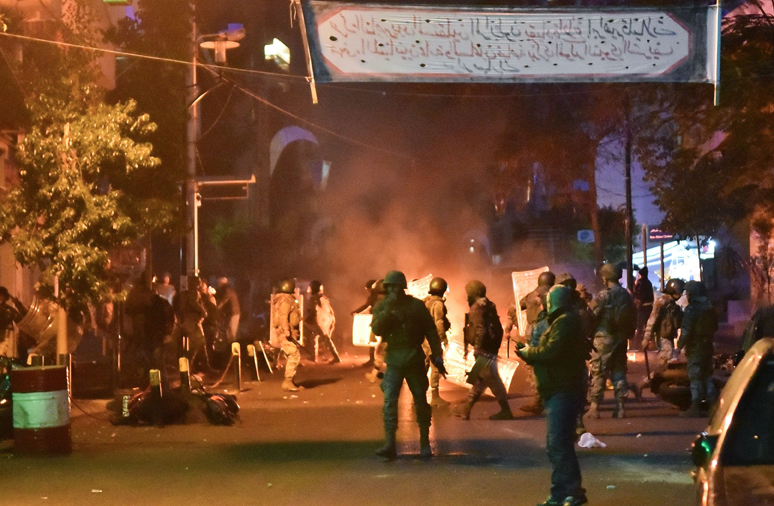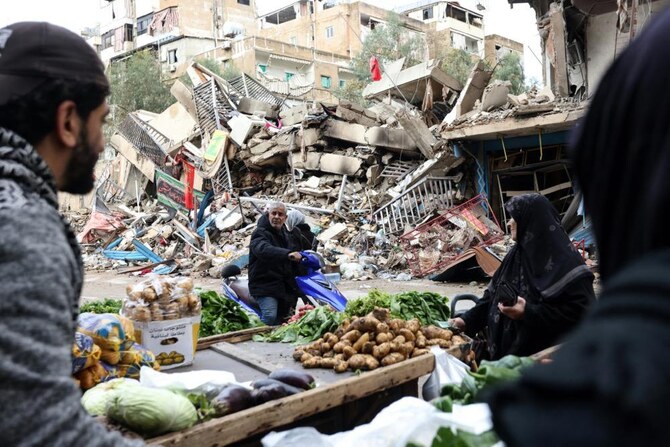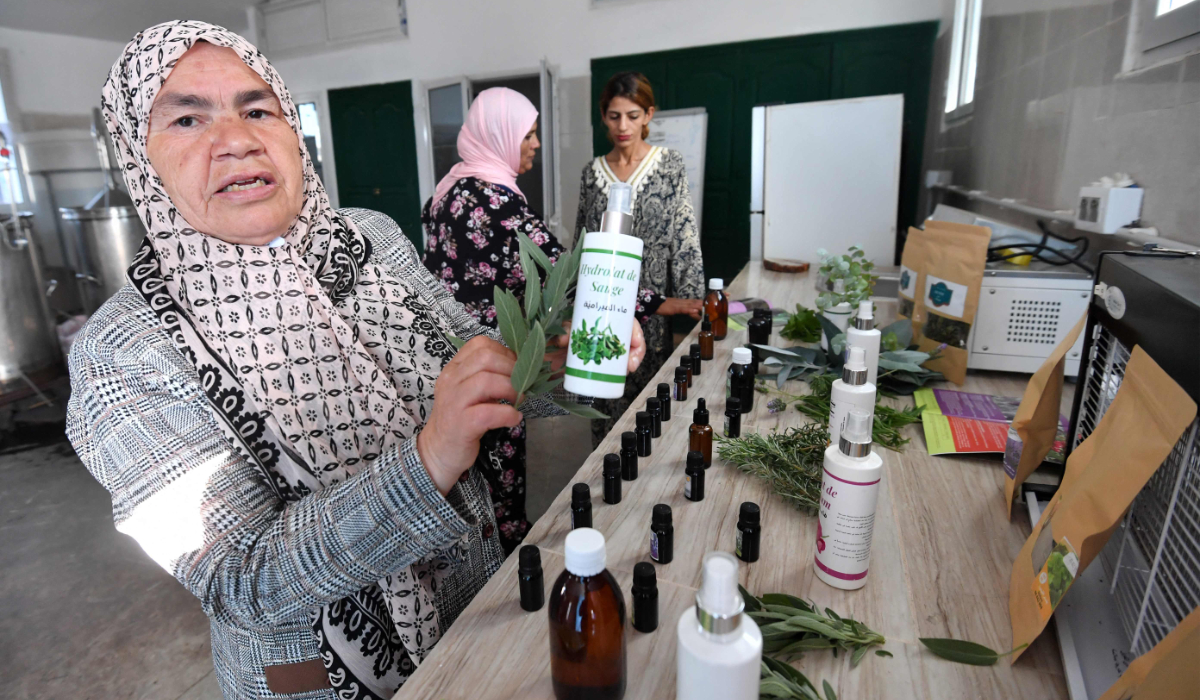BEIRUT: “The revolutionaries are right,” Lebanon’s Prime Minister Hassan Diab announced on the second day of his new assignment. He added that his approach would be “to form a government of independent technocrats. But give me a chance.”
Diab met with former prime ministers — Salim Hoss, Fouad Siniora and Tammam Salam — on Friday, as well as Hariri. His tour came in the wake of pro-Hariri protests held by Sunni Muslims in Beirut, Tripoli and parts of the Bekaa on Thursday night and Friday morning. Those protests escalated into violence, and at least four soldiers from the Fourth Intervention Regiment (the riot squad for the Internal Security Forces) were wounded as protesters threw stones at them.
One woman told Arab News: “Diab does not represent us. We are with the return of Hariri as prime minister.” She accused those in the government of “obstructing Hariri’s work toward achieving the reforms he wanted.”
Hariri quickly called on his supporters to leave the streets immediately “if they loved him.”
After his meetings, Diab said, “There is a positive atmosphere with everyone” and said Hariri had “expressed his willingness to cooperate to form a government.”
“I am an independent technocrat, and my approach is to form a government of independent technocrats to serve the country and solve the problems (which have been) known for some time,” he continued.
Diab said that the country had reached this crisis point after three decades of bad policies. “I understand the protesters’ demands, but they must give us the chance to be able to form an exceptional government to tackle the thorny issues, and we will be one team, regardless of our affiliations,” he said, adding that he expects to form his government within four-to-six weeks.
Against this background, US Under Secretary of State for Political Affairs David Hale arrived in Lebanon on Friday.
After meeting President Michel Aoun, Parliament Speaker Nabih Berri, and Hariri, Hale said his visit reflected “the strength of the partnership between (our) two countries.”

Lebanese soldiers and anti-riot police clash with supporters of outgoing prime minister Saad Hariri during a protest in the Corniche al-Mazraa neighborhood in Beirut on December 20, 2019. (AFP)
He added that US Secretary of State Mike Pompeo had asked him to meet with Lebanese leaders and urge them to “commit to meaningful and sustainable reforms that can lead to a stable, prosperous, and secure Lebanon.”
Hale said: “It is time to put aside partisan interests and act in the national interest, advancing reforms and forming a government that is committed to undertaking those reforms and capable of doing so. We have no role in saying who should lead and comprise such a Cabinet. Or indeed any Cabinet.”
“The unified, non-sectarian, and largely peaceful protests over the last 65 days reflect the Lebanese people’s longstanding and, frankly, legitimate demand for economic and institutional reform, better governance, and an end to endemic corruption,” he continued.
HIGHLIGHTS
- It could take up to 6 weeks to put together an effective administration of experts.
- Diab said Hariri has ‘expressed his willingness to cooperate to form a government.’
- He said that Lebanon had reached a crisis point after three decades of bad policies.
- US Under Secretary of State for Political Affairs David Hale was in Lebanon on Friday.
“America calls on the security forces to continue to guarantee the safety of protesters as they engage in peaceful demonstrations, and for restraint by all. Violence has no place in civil discourse. America wants Lebanon and its people -— all of its people — to succeed, and we will remain a committed partner in that effort.”
Aoun reportedly told Hale that protesters were being provided with “the necessary protection to ensure their freedom of expression without blocking roads, which conflicts with the international laws and norms that guarantee the freedom of others.”
Aoun stressed, according to his media office, that “the anti-corruption march continues intensely.”
The president also called on the US to renew its efforts to “persuade Israel to commit to the demarcation of maritime borders to establish calm and stability in the South.”




































